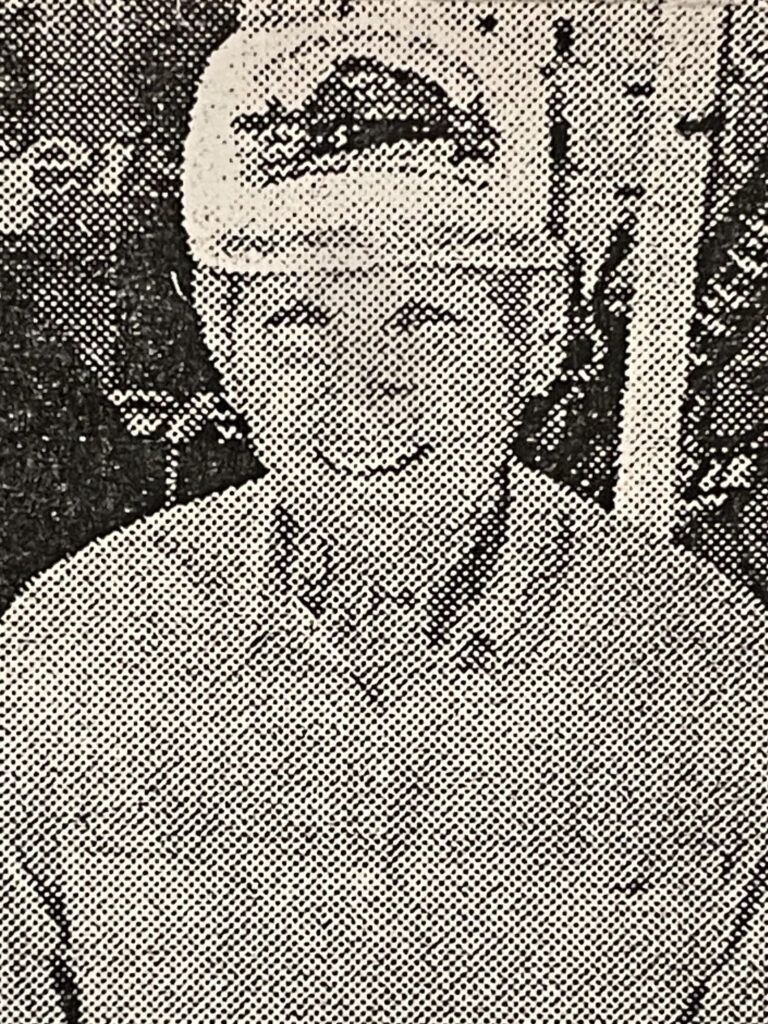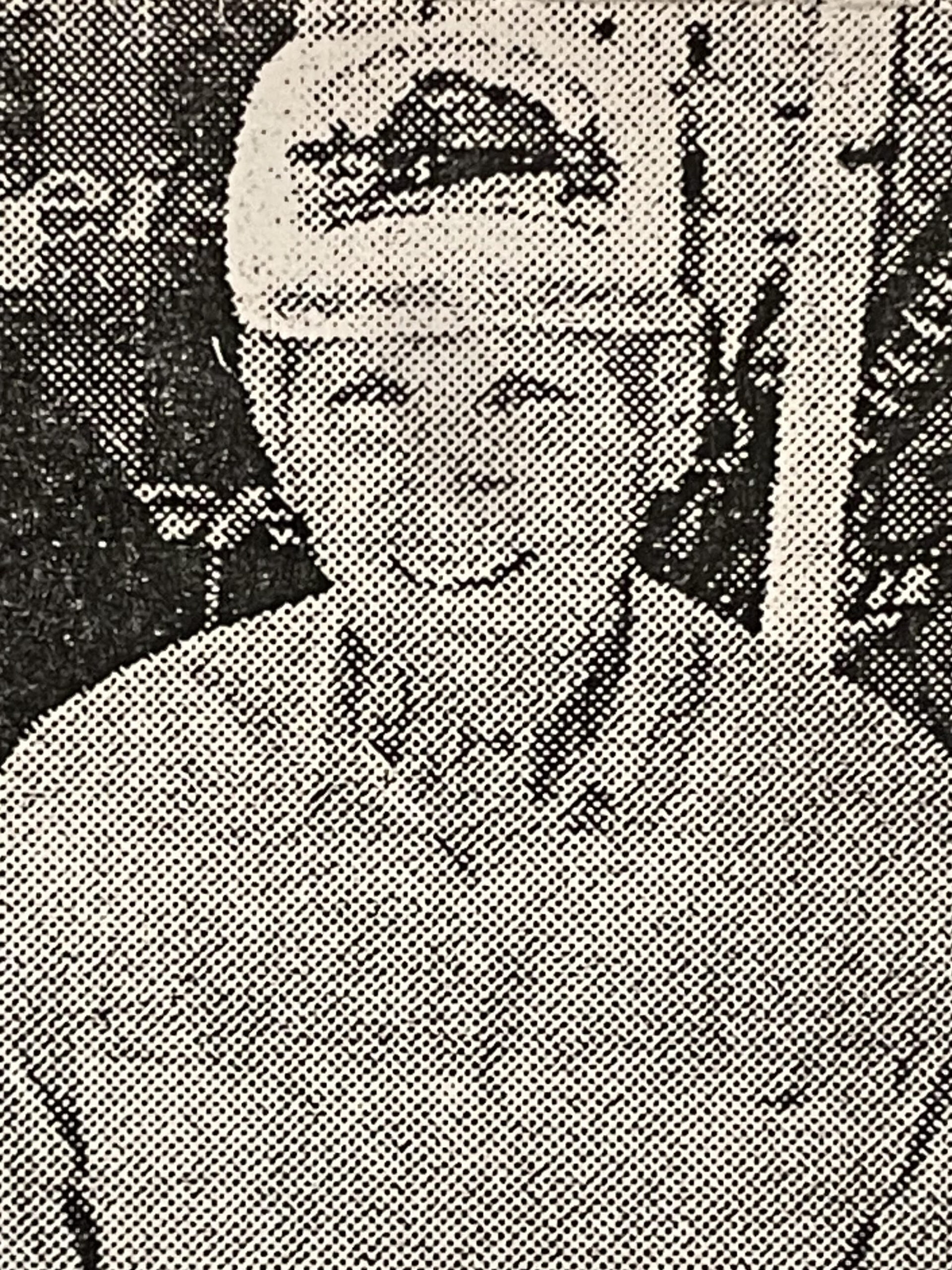Family Estrangement

Cleaning out a basement closet today, I find, stuffed in a box of old sermons and random papers, a twenty-year-old photocopy of an obituary for Robert Foster Anderson. There’s a grainy picture of a man in a white cap. He looks like my Dad, but I never met him. The obit said he had a son and a daughter—my cousins—but I never met them either because my father was estranged from his brother Bob.
Growing up, I knew all my aunts, uncles and cousins on Mother’s side, but almost none one on my father’s. Sometimes we’d visit Dad’s older brother Van out near Rapid City, where my father’s parents lived. But the other two brothers, Don and Bob, were almost never mentioned. As a child, I just accepted that Dad and his brothers “weren’t close,” but when Dad had to bring his ailing father to live with us—where he stayed until his death—his brothers accused him of taking their father’s money. That’s when “not close” became bitter estrangement.
My father had sent me this obit, along with a photocopy of a letter written from Bob’s widow to one of my father’s nieces, which she sent on to him. That’s how Dad found out about his own brother’s death. I know he was sad, grieved to lose a little brother who was already lost to him.
I remember Mother telling us, late in life, that when they went to visit my sister in Arizona, she and my father drove to Bob’s home one winter day and knocked on the door. His wife came to tell them that Bob did not want to see them. They got back in their car and left.
The bonds of family are indissoluble, and the blood line cannot be broken. So when it is, the pain is mixed with guilt for violating some primordial human law. I know that’s how my father felt—that he had failed in some way. Bob was a good man, too. Named Citizen of the Year in 1994, the obit notes. Had a park named after him. Like my father, Bob also knew the pain, the guilt, even if he could not get up from his stuffed chair and come to the door, bury the hatchet.
Now that both brothers are laid to rest, and I am reading my unknown uncle’s obituary, sitting on the basement floor, all I can do is pray. Lord have mercy.

My mother had a brother and a sister who we never met and knew nothing about. No family reunions, nothing. As a result, my sisters and I made a pact that we would always be good sisters to each other, no matter what. And we have.
That’s the totally right response—to learn from those estrangements and make the commitment to never repeat that family pattern.
I found myself tearing up as I read this, revisiting this family history. I’d heard the story before but here was detail I hadn’t known, and therefore a new pain.
Today I am so, so grateful for my siblings, how we love each other with a sure love. There never has been and, by God’s grace, never will be any lasting estrangement among us.
But I can’t take this for granted. Like Ellie says above, I make this pledge, this pact: that, with God’s help, I will honor my family and keep my heart open to every person, including those who join us by marriage, and especially to any who might walk away or, for a time, turn their backs.
Grief is a good teacher. Thank you, David.
We can’t take any relationship for secure, done. We build it every day. Take the vow, every day.
Yes, Ellie, that’s the right response. I’m making the same pact!
And then there is the pain of divorce which leaves families divided and grandchildren who never get to know one of their grandparents. The serendipitous side of all this is that you find and make connections with other people along the way who become especially meaningful in your life. They don’t take the place of those shadow relatives but they become part of your family. There is healing in that, too.
Thanks, Sandy—as soon as I read your reply I realized how divorce is the most common form of estrangement! And yet…it is sometimes the best and most gracious act a couple can make together. Out of the rubble of the former relationship we can create something new of the pieces, something beautiful and redeeming.
Every family has this story, and it’s always painful. That the details of “why” are always seemingly forgotten only makes these feuds more senseless. Missed opportunities and lost connections – and inevitably, regret. Thank you for sharing, David
Thanks, Brian—that’s the theme That keeps coming up as we talk about this—that the reasons are often almost unknown, and usually quite insignificant in the. IG picture of life.
My mom’s side of the family was torn apart by alcoholism. I didn’t know most of my aunts and uncles and great aunts and great uncles – neither of my grandparents ever drank but both sides of grandparents ravaged by alcohol (which is why they never touched it) – and they each had like 7 brothers and sisters! Every once in awhile one would show up to their house for “Sunday dinner” and I was like 6 yrs old and always wondered what was up with the purple noses. They seemed so friendly!
I remember when my therapist first brought up to my first wife and I the idea of separation – I was like “no way” and as time passed it became “way.” The build up to telling my kids was the worst part of the entire process – am I ruining them? Well, as advertised, they are resilient and yes ended up being best thing for entire family and we are ALL better for it today. My kids (not really kids anymore) always say “I have no idea how you guys stayed together so long!” Anyways, great post brought up a lot!
With that kind of alcoholism on both sides of your family, you were pretty much sure to fight that battle as well. I’m glad you are in a good place now.
Hey Matt, yes so true. I can relate to your story, my friend. It’s like the substance I’m addicted to is my primary relationship. Food or drugs or alcohol is my best friend and everything else, everyone else is subordinate. I’m so glad to be in recovery. Glad you are, too.
Today’s read has been so provocative when paired with the comments.
Thanks to all of you.
Your comments made David’s blog even more poignant (which is, of course, difficult to do).
Thanks for reading, Mark—always makes me smile to hear from you!